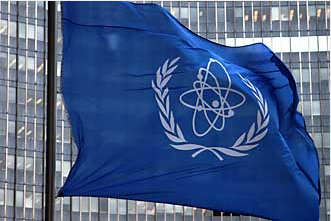 A massive earthquake that struck off Japan’s northeastern coast on Friday— taking 1,200 lives, with thousands still unaccounted for and ten thousand feared dead by police — also damaged multiple nuclear power plants there.
A massive earthquake that struck off Japan’s northeastern coast on Friday— taking 1,200 lives, with thousands still unaccounted for and ten thousand feared dead by police — also damaged multiple nuclear power plants there.
On Sunday, Japan’s Chief Cabinet Secretary Yukio Edano said a partial meltdown at the Fukushiman Dai-ichi nuclear complex, was likely under way. The partial meltdown follows a blast on Saturday at one unit of the complex, where operators are working to cool the reactor core by injecting seawater and boron into its containment vessel.
Also on Sunday, according to the International Atomic Energy Association Japan’s Tokyo Electric Power Company (TEPCO) reported a state of emergency at a another facility, the Onagawa nuclear power plant; while its three reactors remained under control, the emergency alert was related to radioactivity readings in the area that exceeded allowable levels.
Eric Talmadge and Mari Yamaguchi reported for the Associated Press:
“More than 170,000 people had been evacuated as a precaution… Edano said the radioactivity released into the environment so far was so small it didn’t pose any health threats. A complete meltdown — the collapse of a power plant’s systems and its ability to keep temperatures under control — could release uranium and dangerous contaminants into the environment and pose major, widespread health risks.”
While facing the terrifying prospect of multiple nuclear meltdowns in their country, millions of Japanese households remain without electricity, food and water currently.
The natural disasters could have caused even more damage if not for Japan’s investments in advanced warning systems, and constant updating of building codes to deal with earthquakes, especially.
Japan’s Meteorological Agency warned of strong aftershocks ahead; their website suggests a 70 percent chance of a magnitude 7-class earthquakes through March 16, 2011.
As oil prices are skyrocketing, generally, and energy demands are rising the United States’ energy chief, Steven Chu, recently asked Congress to consider an American clean energy standard that would include nuclear along with renewable sources like solar and wind. The situation in Japan, however, underscores controversy around designating nuclear as a clean energy source.